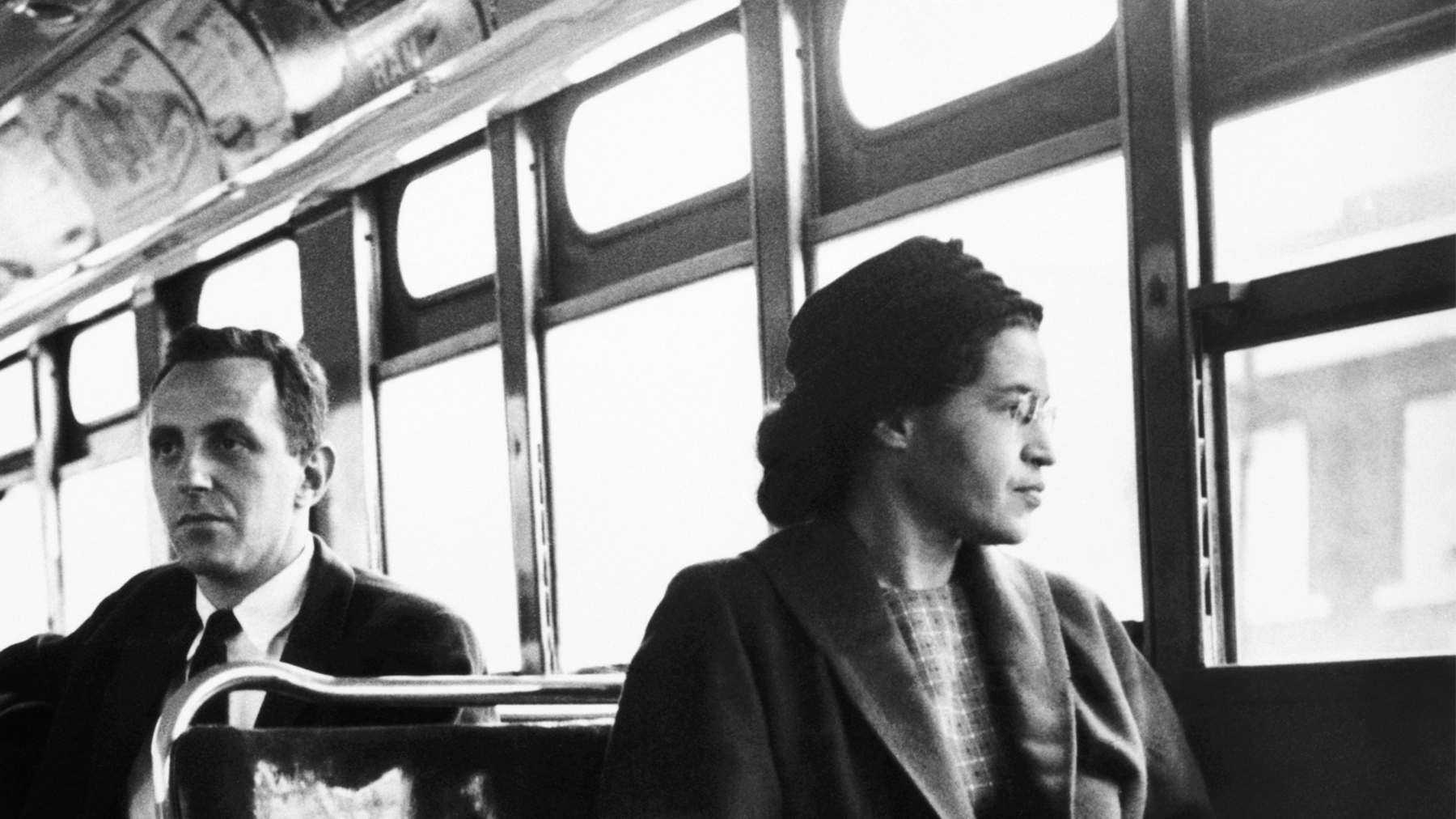Three and a half years before Rosa Parks sat down, Pfc. Sarah Keys refused to get up.
Keys was in the Army and traveling home on furlough. When a new bus driver took the wheel in Roanoke Rapids, North Carolina, he demanded that she give up her seat to a white Marine.
Keys refused. So the driver emptied the bus, directed the other passengers to another vehicle and barred Keys from boarding it. She was charged with disorderly conduct and jailed, paying a $25 fine.
She filed a complaint — and in a milestone for civil rights, she won.
The Interstate Commerce Commission’s regulatory decision in Sarah Keys v. Carolina Coach Company came down just months before Rosa Parks refused to give up her own seat on a city bus in Montgomery, Alabama.
But it is Parks, not Keys, who is remembered as a “first” in a protest that “seemed to arise spontaneously,” as Glenda Elizabeth Gilmore writes for The New York Times.
This narrative of Parks as a guileless seamstress merely exhausted from a long day’s work does a disservice to the many other women who waged similar protests — of whom Keys was just one — as well as a disservice to Parks herself, who was in fact a trained activist.
But the biggest disservice of such a narrative is to Americans seeking to understand protest. As Gilmore writes:
Our textbooks and national mythology celebrate moments when single acts of civil disobedience, untainted by political organizations, seemed to change the course of history. But the ideal of the “good” protest — one that materialized from an individual’s epiphany — is a fantasy. More often, effective protest is like Mr. Kaepernick’s: it’s collective and contingent and all about long and difficult struggles.
Parks knew that, and the Montgomery Bus Boycott was neither the first nor the last protest she undertook to advance civil rights.
More than a decade earlier she led a national campaign against sexual assault on black women. As DeNeen Brown recounts for The Washington Post, Parks was dispatched in 1944 by the NAACP to investigate the brutal gang rape of 24-year-old Recy Taylor.
As Parks discovered, Taylor had been kidnapped on her way home from church and raped in the woods by six different men. She was eventually discovered staggering down the road by her father.
The lawyer representing the alleged rapists reportedly offered her husband $600 to silence her. “N—– — ain’t $600 enough for raping your wife,” the lawyer said.
When a grand jury refused to indict the men, Parks was undeterred. She launched the Alabama Committee for Equal Justice for Mrs. Recy Taylor, flooding the South with flyers and lawmakers’ offices with letters.
Her campaign succeeded in prompting Alabama’s governor to order another investigation of Taylor’s rape. The result of that investigation: another grand jury that again refused to indict the suspects.
Parks and Taylor had come up against a justice system familiar to too many women: one that, even armed with both witnesses and a confession, failed to hold any of the six perpetrators accountable. The men were never prosecuted.
More than 70 years after Recy Taylor’s rape, a day of reckoning appears to have arrived for sexual predators in all fields. Parks’ campaign reminds us again of the nature of the struggle.
To integrate public transportation, it took Sarah Keys as well as Rosa Parks.
To win the fight against sexual assault, it will take more than one protest, one campaign, or one person.
The Montgomery Bus Boycott was neither the beginning nor the end of Parks’ activism, and today, for all of us, the march continues.
The Editors.
P.S. Here are some other pieces we think are valuable this week:
- ‘Please, God, don’t let me get stopped’: Around Atlanta, no sanctuary for immigrants by Vivian Yee for The New York Times
- The nationalist’s delusion by Adam Serwer for The Atlantic
- I’m a trans refugee in my own country by Jordan Hanson for Splinter News
- The French origins of “You will not replace us” by Thomas Chatterton Williams for The New Yorker
SPLC’s Weekend Reads are a weekly summary of the most important reporting and commentary from around the country on civil rights, economic and racial inequity, and hate and extremism. Sign up to receive Weekend Reads every Saturday morning.



